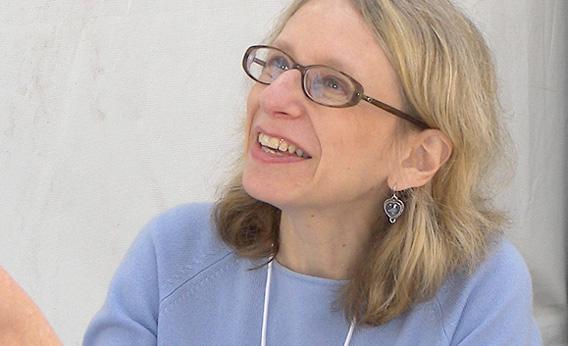National Book Awards season is upon us: The judges have just announced the longlist for 2014’s nonfiction contest. The ten-book lineup includes a historical account of Paris under German occupation (by Ronald C. Rosbottom), a biography of Tennessee Williams (by John Lahr), a study of economic ambition in the “new China” (by Evan Osnos), and E.O. Wilson’s meditations on “the meaning of human existence.” There is also No Good Man Among the Living, by Anand Gopal, and The Mantle of Command: FDR at War, 1941-1942, by Nigel Hamilton. Finally—like a breeze that floats into a history classroom when someone finally opens the window—there is Can’t We Talk About Something More Pleasant?, the cartoonist Roz Chast’s memoir about her aging parents.
I don’t mean to diminish the acheivements of the other nominees, but it is striking that, after winnowing down a pool of almost 500 contenders, the judges came up with a male-to-female ratio of nine to one, with Chaz as the whimsical outlier. The skew is especially notable given that, in general, the NBA is recognizing more and more women: Though winners and finalists in the 1950s were almost 80 percent male, recent years show women gaining ground and even surpassing their male peers in some prize categories. Look at the names of this year’s Young Adult and poetry finalists, and you’ll find an even split between men and women. Is the heavy maleness surrounding the 2014 nonfiction roster just a statistical fluke?
You could argue that, I guess: Writers like Katherine Boo, Anne Applebaum, Jill Lepore, Jane Meyer, and Deborah Baker have graced recent years’ nonfiction short list. But, in his smart piece on the announcement, Ron Charles also notes that “objective-sounding words like ‘quality,’ ‘depth’ and ‘significance’”—all terms you might imagine wafting through judges’ heads—“were, for centuries, defined in ways that privileged certain kinds of writing (and excluded certain kinds of authors).” (“It’s no coincidence that great books are described as ‘seminal’ instead of ‘ovular,’” he adds, in a fruitful analogy that made me think of how we naturalize books, not to mention the arbitrary preferences we attach to them.) Nonfiction has long been the most solemn, momentous, and “thought-leading” of the literary genres—a way for authors to wrestle with the sweep of history and the deeds of men. It is what A.O. Scott’s grouchy avatar might come home to after a long day of being a serious adult, to reflect on the lofty example of other adults in a stern yet recognizable world. Nonfiction, you might say, is the patriarch of the book family. Genres like poetry and YA—the ones whose NBA dockets boast fairer gender distributions—are the wife and kids.
Yet one type of nonfiction has exploded over the past few years, popularizing such names as Cheryl Strayed, Caitlin Moran, and newly minted MacArthur genius Alison Bechdel—not to mention a slate of inward-looking female essayists. (Where was Leslie Jamison on the NBA list? Twitter wants to know.) Memoir, which combines a novel’s focus on characters with a lyric poem’s subjectivity, has lately been overrun by ladies. Meanwhile, only four of the organization’s past 50 nonfiction nominees have been memoirs, and three of those four—Just Kids by Patti Smith, Brother, I’m Dying by Edwidge Danticat, and The Year of Magical Thinking by Joan Didion—were penned by women. Of 2014’s ten nonfiction anointees, exactly one is a memoir, and it’s not the sustained look at FDR’s mantle of wartime command.
Does the relative invisibility of memoir on the nonfiction prize circuit lead to the underrepresentation of women? Or is it the other way around? Perhaps women are drawn to memoir for the same reasons that NBA judges seem to flinch from it: The genre’s goals feel less explicitly grandiose and weighty, more acceptable for us—with our “emotions” and our “fine brushwork”—to strive for. (Again, though, plenty of female writers have plunged into traditional, research and reporting-based nonfiction.) Or perhaps memoir would seem just as earthshaking if we gave it the credit it deserves. Whatever the reasons, today’s announcement suggests several ways in which the patriarch of the literary categories might grow and broaden. Maybe he could mix up his World War II scholarship with some rigorous work on immunity, or perfection. One day, he might even want to write about his own life.
